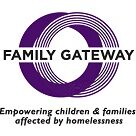April 22, 2020 – The Dallas Morning News – Hayat Norimine and Obed Manuel
Millions of dollars will soon be disbursed for Dallas renters, homeowners and small businesses struggling in the wake of COVID-19.
Dallas City Council members on Wednesday finalized about $13.7 million in federally funded rental and mortgage assistance as well as $5 million from the Coronavirus Aid, Relief and Economic Security Act for struggling small businesses.
The city also provided additional eviction protections to residents unable to pay rent because of the pandemic.
Rent and mortgage assistance
Residents will be able to apply for aid starting May 1 from the city or nonprofits. Those who meet certain qualifications can receive up to $1,500 a month for up to three months of rent, mortgage or utility payments. Those who need more long-term help could secure up to two years of payments.
People with incomes at or below 80% of the area median income can apply. Most of the long-term assistance will be earmarked for those at or below 60% of the area median income. Public housing residents and voucher holders are ineligible.
More than $6 million will help provide relief for residents who lost income or have increased expenses, such as health care or child care needs, due to the coronavirus.
Council members also created a $1 million fund for nonprofits to distribute to qualified residents who need rental assistance. That money is limited to those with incomes at or below 50% of the area median income and are at risk of homelessness if they can’t make rental payments. Residents can get up to six months of payments.
Nonprofits, particularly faith institutions, hope to be able to disburse some of the funding to undocumented immigrants who won’t qualify for federal relief.
Help for small businesses
Council member Casey Thomas, who heads the ad-hoc committee focused on economic recovery, said Wednesday that the aid for small businesses was “one of the most important projects” he’s worked on in his five years on the council.
“This is an unusual time, and it calls for us to have a sense of urgency,” Thomas said. “We want to make sure all of the residents of the city of Dallas know that this is for them.”
Dallas expects to receive more than $300 million in federal funding for relief from the coronavirus. The city received the majority of those dollars, $234.4 million, from the Treasury Department on Tuesday.
About $53.8 million will go to Dallas Love Field Airport.
Eviction protections
The city also adopted a temporary ordinance protecting renters from evictions if they have been financially impacted by the spread of the coronavirus. Landlords will be required to provide a “COVID notice of possible eviction.”
The temporary eviction ordinance gives tenants 21 days to respond to the notices and an additional 60 days to catch up on rent before a landlord can begin eviction proceedings. Landlords who begin eviction actions against COVID-impacted tenants would face a $500 fine.
Council member Adam Bazaldua, who proposed the ordinance, said at a news conference that this action is critically needed at this time and especially in his district, where he said about 80% of residents are renters.
“There’s an enormous need for the city to step in and do what we can to supplement any efforts in relief for tenants and residents alike who are unable to meet their financial obligations,” said Bazaldua, who represents District 7, which covers South Dallas and parts of East Dallas.
The votes Wednesday by the City Council on rental assistance and eviction protections for families impacted by the coronavirus are wins for renters and landlords, said Ellen Magnis, president and CEO of Family Gateway, a nonprofit that provides emergency shelter for families.
Magnis said there was concern around the nonprofit community that there would be an increase of homeless families and individuals when county and state moratoriums on evictions are lifted. But the added protection passed by the city will give families struggling for income some time to get back on their feet, she said.
She added that while the rental assistance is crucial and a good start, the city still has a lot of work to do.
“We’re going to need to tap into every possible resource to keep families housed,” Magnis said. “We already have a shelter full of families, so there is no capacity in the system to take on the additional families right now.”
Click here to view the full story.
